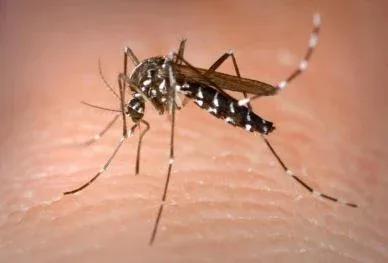The Dengue season is here, hitting urban areas of Sindh and Punjab the hardest. This disease often sparks panic due to its perceived fatality. Every year, as autumn sets in, hospitals and clinics report a surge in cases.
Understanding this disease and how to protect yourself is crucial. Dengue is caused by a virus transmitted by a specific type of mosquito known as the Tiger mosquito (scientifically named Aedes aegypti). This mosquito wasn’t native to Pakistan but was introduced through used tires imported from the Far East.
This mosquito is different from the usual ones that buzz around at dawn and dusk. It’s fragile with white spots on its legs and wings. It breeds in clean water, unlike malaria mosquitoes. It’s active during the daytime and rarely bites at night.
Dengue causes high fever, severe body aches, headache, pain behind the eyes, and vomiting. In severe cases, it can lead to Dengue Hemorrhagic Fever, depleting platelets and causing internal bleeding, leading to pink or purple spots on the skin and, in extreme cases, death.
Treatment is mostly supportive as there’s no specific cure. Severe cases might require blood transfusions and fluids.
Prevention is key, especially in urban areas like Karachi, Hyderabad, Lahore, and Multan. Wear long-sleeved clothes outdoors, use mosquito repellents, and sleep under treated bed nets. Remove stagnant water around your home.
If you develop fever and body aches, consult a doctor for tests. Sleep under bed nets to prevent spreading the virus to others.
Stay cautious, take preventive measures, and enjoy life.

















